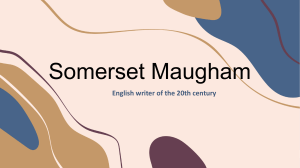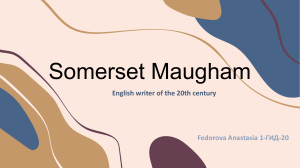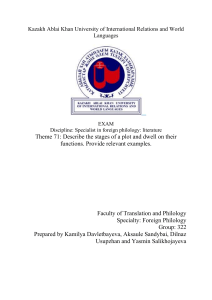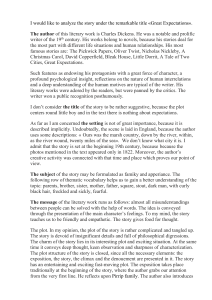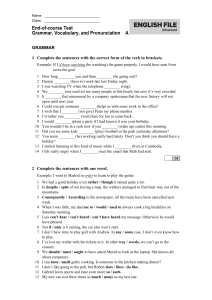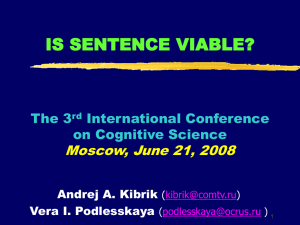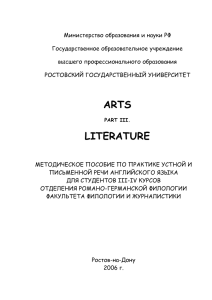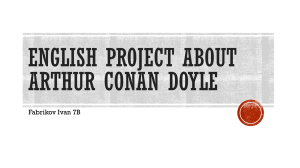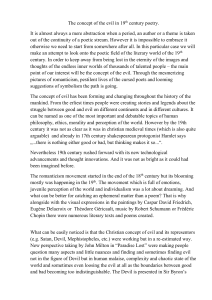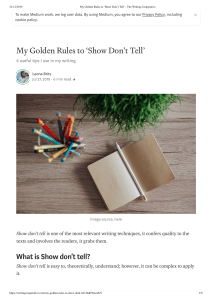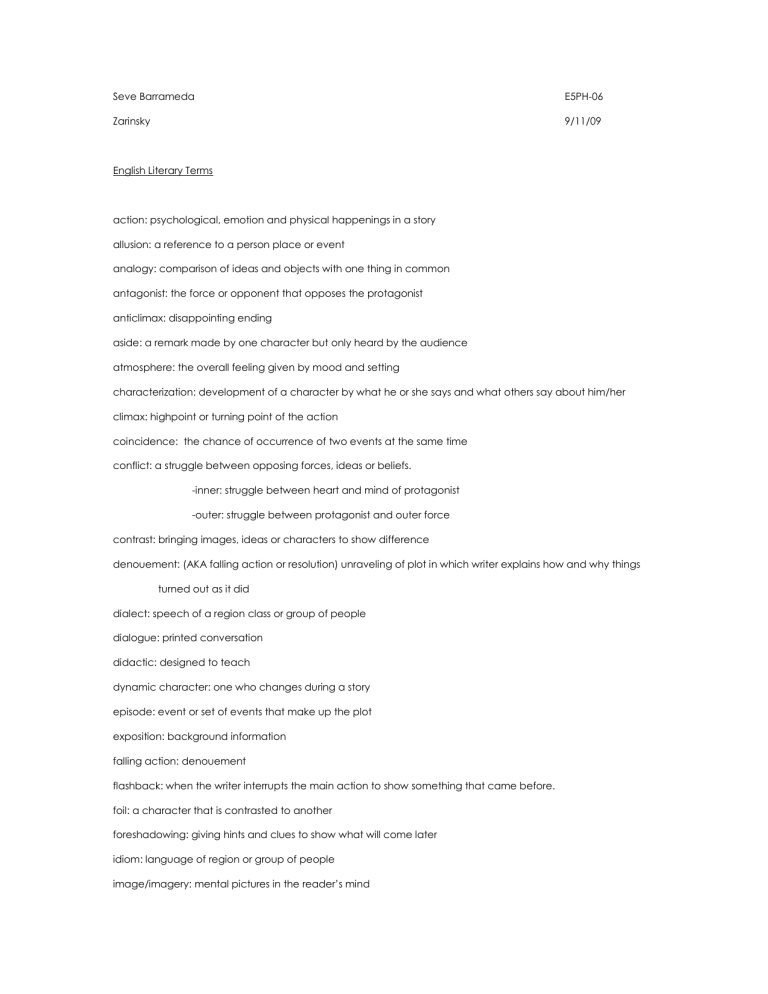
Seve Barrameda E5PH-06 Zarinsky 9/11/09 English Literary Terms action: psychological, emotion and physical happenings in a story allusion: a reference to a person place or event analogy: comparison of ideas and objects with one thing in common antagonist: the force or opponent that opposes the protagonist anticlimax: disappointing ending aside: a remark made by one character but only heard by the audience atmosphere: the overall feeling given by mood and setting characterization: development of a character by what he or she says and what others say about him/her climax: highpoint or turning point of the action coincidence: the chance of occurrence of two events at the same time conflict: a struggle between opposing forces, ideas or beliefs. -inner: struggle between heart and mind of protagonist -outer: struggle between protagonist and outer force contrast: bringing images, ideas or characters to show difference denouement: (AKA falling action or resolution) unraveling of plot in which writer explains how and why things turned out as it did dialect: speech of a region class or group of people dialogue: printed conversation didactic: designed to teach dynamic character: one who changes during a story episode: event or set of events that make up the plot exposition: background information falling action: denouement flashback: when the writer interrupts the main action to show something that came before. foil: a character that is contrasted to another foreshadowing: giving hints and clues to show what will come later idiom: language of region or group of people image/imagery: mental pictures in the reader’s mind incident: minor event irony: unexpected outcome locale: place metaphor: comparison of two unlike things without using like or as monologue: a long speech by one character mood: state of mind created by writer moral: lesson motivation: the cause or reason the character acts the way he/she does parody: humorous imitation personification: giving human qualities to a non-human thing plot: series of related events that make up the action protagonist: main character who faces a problem and in trying to solve it becomes part of a conflict with the antagonist realism: showing situations and events as they really are resolution: falling action or denouement rising action: series of events before climax in which main conflict is developed romanticism: showing people situations or events as the other imagines them to be satire: making fun of individuals or institutions scene: short episode in which time or place change setting: time and place simile: comparison of two things using like or as soliloquy: long speech in which a character is thinking out loud stage direction: words in italics which tell actors what to do static character: one that does not change stereotype: the character that acts as people expect to act style: choice of words of a writer suspense: a feeling of excitement of what is to come symbol: object that stands for something theme: main idea or message tone: author’s attitude of his or her subject tragedy: when the protagonist has a moral struggle and is defeated because of a flaw in his or her personality.
